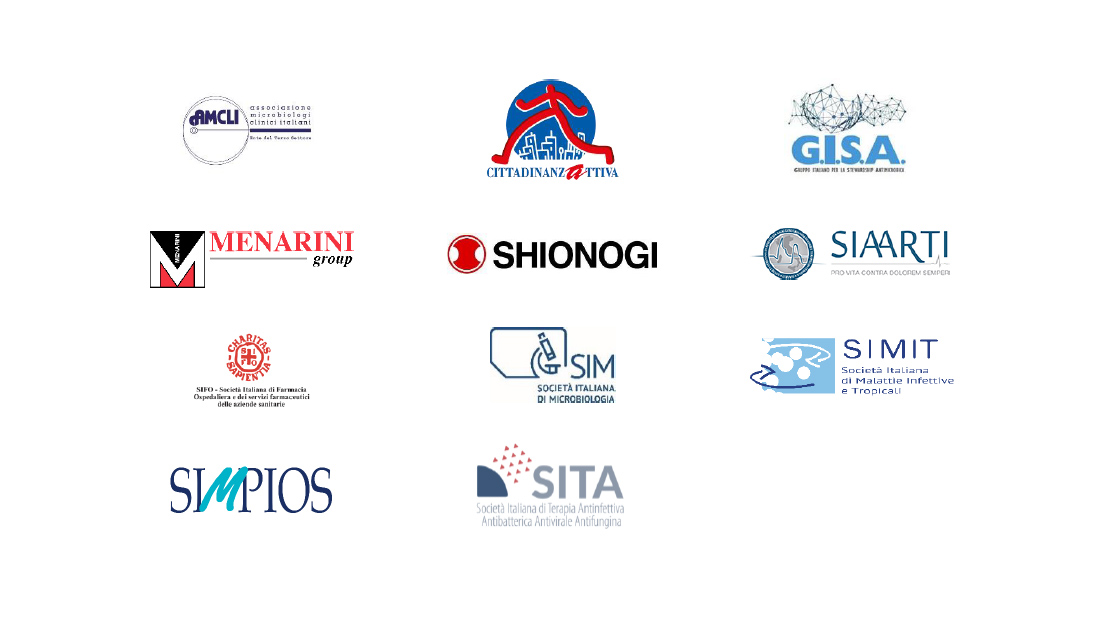A call to action for the Italian G7 Presidency in 2024
The World Health Organisation has recognised that antimicrobial resistance (AMR) - that is the ability of microbes (especially bacteria) to modify and mutate their behaviour, making the drugs normally used against them ineffective - is one of the ten main threats to humanity, which must be tackled with the utmost urgency and with multi-sectoral interventions. We, as representatives of the associations that have signed this call to action, enthusiastically welcome the Italian Minister of Health Schillaci's commitment to make AMR "one of the central issues under the Italian G7 Presidency next year" and express our strongest support for the Italian government to choose AMR as an independent, stand-alone priority for the 2024 Health and Finance Ministerial Meetings.
The costs of AMR are immense, both in public health and economic terms. At least 1.27 million people die each year worldwide from antibiotic-resistant bacterial infection, a third more than HIV/AIDS and twice as many as malaria. And even high-income countries are increasingly affected by AMR: in the European Union alone, almost 100 people die every day from these infections. In Italy, AMR causes 10.000 deaths a year. Even the most ordinary hospitalisation or surgery can lead to dramatic consequences.
If no effective action is taken, the economic impact of AMR could be more severe by 2050 than the 2008-2009 financial crisis. A recent OECD assessment estimated that, to date, AMR costs about EUR 1.1 billion per year in European countries, and in Italy it will cost EUR 11 billion between now and 2050. Fighting AMR would save EUR 445 million per year.
Since their discovery almost 100 years ago, antibiotics have not only saved millions of lives, but have enabled medical practices that we now consider routine such as caesarean sections, chemotherapy and transplants. And yet, about one third of Staphylococcus aureus infections are already resistant to methicillin and multi-resistant to common antibiotics. Also of great concern is the increase in carbapenems resistance in Klebsiella pneumoniae and other Enterobacteria. The most vulnerable and fragile individuals, such as newborns, the elderly and the immunocompromised, rely on the efficacy of antibiotics all the time, but, just as an example, bacterial infections are the second leading cause of mortality in cancer patients.
World leaders have begun to recognise the urgency of taking concrete action to limit the progression of AMR. The last three G7 summits (UK 2021, Germany 2022 and Japan 2023) have all prioritised a discussion on the main measures to be taken. Microbiological surveillance, primary prevention with a focus on care-associated infections, promotion of the correct use of antimicrobials (stewardship), research and innovation for new drugs, vaccines and diagnostics, access to existing products and the preservation of their efficacy were highlighted as essential elements for the realisation of an effective countermeasure plan.
In Italy, we find it encouraging that the National Action Plan against AMR has been updated at the end of 2022, and that the last multiannual state budget authorised an expenditure of EUR 40 mln for each of the next three years. Given the urgency and complexity of the problem, however, more can and must certainly be done, both locally and internationally.
In September 2024, world leaders will gather for a High-Level Meeting on AMR at the United Nations General Assembly. This exceptional event will take place in conjunction with the Italian Presidency of the G7. No other opportunity seems to us better than this to make significant progress in the fight against AMR. This is why we believe it is crucial that the Italian Government makes AMR an independent and priority topic of next year's Health and Finance Ministerial meetings, demanding and promulgating concrete actions and adequate funding.
The document was signed by:
- AMCLI - Associazione Microbiologi Clinici Italiani
- CITTADINANZATTIVA
- GISA - Gruppo Italiano Stewardship Antimicrobica
- MENARINI
- SHIONOGI ITALIA
- SIAARTI - Società Italiana di Anestesia, Analgesia, Rianimazione e Terapia Intensiva
- SIFO - Società Italiana di Farmacia Ospedaliera e dei Servizi Farmaceutici
- SIM - Società Italiana di Microbiologia
- SIMIT - Società Italiana di Malattie Infettive e Tropicali
- SIMPIOS – Società Italiana Multidisciplinare per la Prevenzione delle Infezioni nelle Organizzazioni Sanitarie
- SITA - Società Italiana di Terapia Antinfettiva, Antibatterica, Antivirale, Antifungina
The document was drafted on August 2023 by Cittadinanzattiva, Menarini and Società Italiana di Microbiologia, with international contributions from the AMR Action Fund, BEAM Alliance and CARB-X.




